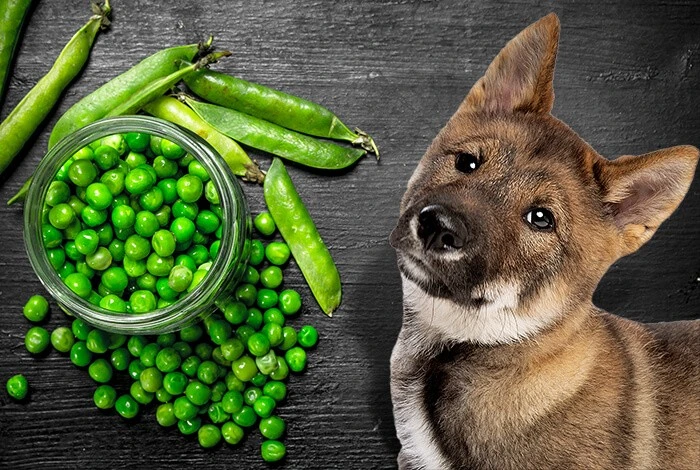As dog owners, we often want to share our snacks with our furry friends. While many human foods can be harmful to dogs, others are perfectly safe and even beneficial. Snap peas, a crunchy and sweet vegetable, are a favorite snack for many people. But can dogs enjoy snap peas too? This article will explore the safety, nutritional benefits, potential risks, and ways to incorporate snap peas into your dog’s diet.
Are Snap Peas Safe for Dogs?
Yes, snap peas are safe for dogs to eat! These vibrant green pods are not only delicious but also packed with nutrients. They can be a healthy, low-calorie treat for your dog, provided they are prepared correctly.
Nutritional Benefits of Snap Peas for Dogs
Snap peas are rich in vitamins, minerals, and fiber, making them a nutritious addition to your dog's diet. Here are some key nutritional benefits:
-
Vitamins and Minerals
Snap peas are an excellent source of vitamins A, C, and K. Vitamin A is essential for maintaining healthy vision, skin, and immune function, while vitamin C plays a vital role in collagen production and immune support. Vitamin K is crucial for blood clotting and bone health. -
Fiber
The dietary fiber in snap peas promotes healthy digestion and helps maintain bowel regularity. Fiber can also aid in weight management by providing a feeling of fullness. -
Low in Calories
Snap peas are low in calories, making them a suitable treat for dogs that need to manage their weight. You can give them as a crunchy snack without worrying about excessive calorie intake. -
Antioxidants
Snap peas contain antioxidants, which help combat oxidative stress and inflammation in the body. Antioxidants support overall health and can reduce the risk of chronic diseases.
How to Safely Serve Snap Peas to Dogs
While snap peas are safe for dogs, proper preparation is essential to ensure they’re both safe and palatable. Here are some guidelines for serving snap peas to your dog:
1. Wash Thoroughly
Always wash snap peas thoroughly to remove any pesticides or contaminants. This step is crucial for any fresh vegetables you plan to share with your pet.
2. Serve Raw or Cooked
You can offer snap peas raw or lightly cooked. Steaming or blanching can make them softer and easier for your dog to chew, especially for senior dogs or those with dental issues. Avoid adding any seasoning, butter, or oil, as these can be unhealthy for dogs.
3. Remove Tough Ends
Before serving snap peas, trim the tough ends of the pods. While most dogs can chew the pods, the ends can be harder to digest and may pose a choking hazard.
4. Moderation is Key
Like any treat, snap peas should be given in moderation. Too many peas at once can lead to digestive upset, including gas or diarrhea. Start with a small amount to see how your dog reacts.
Potential Risks of Feeding Snap Peas to Dogs
While snap peas are generally safe, there are a few potential risks to consider:
-
Digestive Upset
Some dogs may have sensitive stomachs and could experience gas or diarrhea if they eat too many snap peas at once. Always introduce new foods gradually and monitor your dog’s reaction. -
Choking Hazard
Although snap peas are usually safe, whole pods can be a choking hazard, particularly for small dogs. Cut them into smaller pieces if you’re concerned about choking. -
Pesticides and Chemicals
Fresh vegetables can carry pesticide residues. Always wash snap peas thoroughly before offering them to your dog, or consider buying organic produce when possible.
How to Incorporate Snap Peas into Your Dog’s Diet
If your dog enjoys snap peas, here are some ideas for incorporating them into their diet:
-
As a Treat
Offer snap peas as a crunchy treat during training sessions or as a reward. Their sweet flavor can make them an appealing snack for dogs. -
In Homemade Dog Treats
Incorporate snap peas into homemade dog treats. You can blend them with other dog-safe ingredients, such as whole wheat flour or oats, to create a nutritious snack. -
Mixed with Other Veggies
Mix snap peas with other dog-safe vegetables, such as carrots, green beans, or sweet potatoes, for a colorful and nutritious veggie medley. -
Pureed for Older Dogs
For dogs with dental issues or those who prefer softer food, you can puree cooked snap peas and serve them as a healthy addition to their meals.
Final Verdict: Can Dogs Have Snap Peas?
In conclusion, snap peas are a healthy, safe, and nutritious snack for dogs when prepared properly. They provide essential vitamins, minerals, and fiber while being low in calories. Just remember to wash them thoroughly, serve them in moderation, and remove any tough ends before sharing.
As always, consult your veterinarian before introducing new foods into your dog’s diet, especially if your pet has pre-existing health conditions. With the right approach, snap peas can be a delightful and nutritious addition to your dog's treats!


